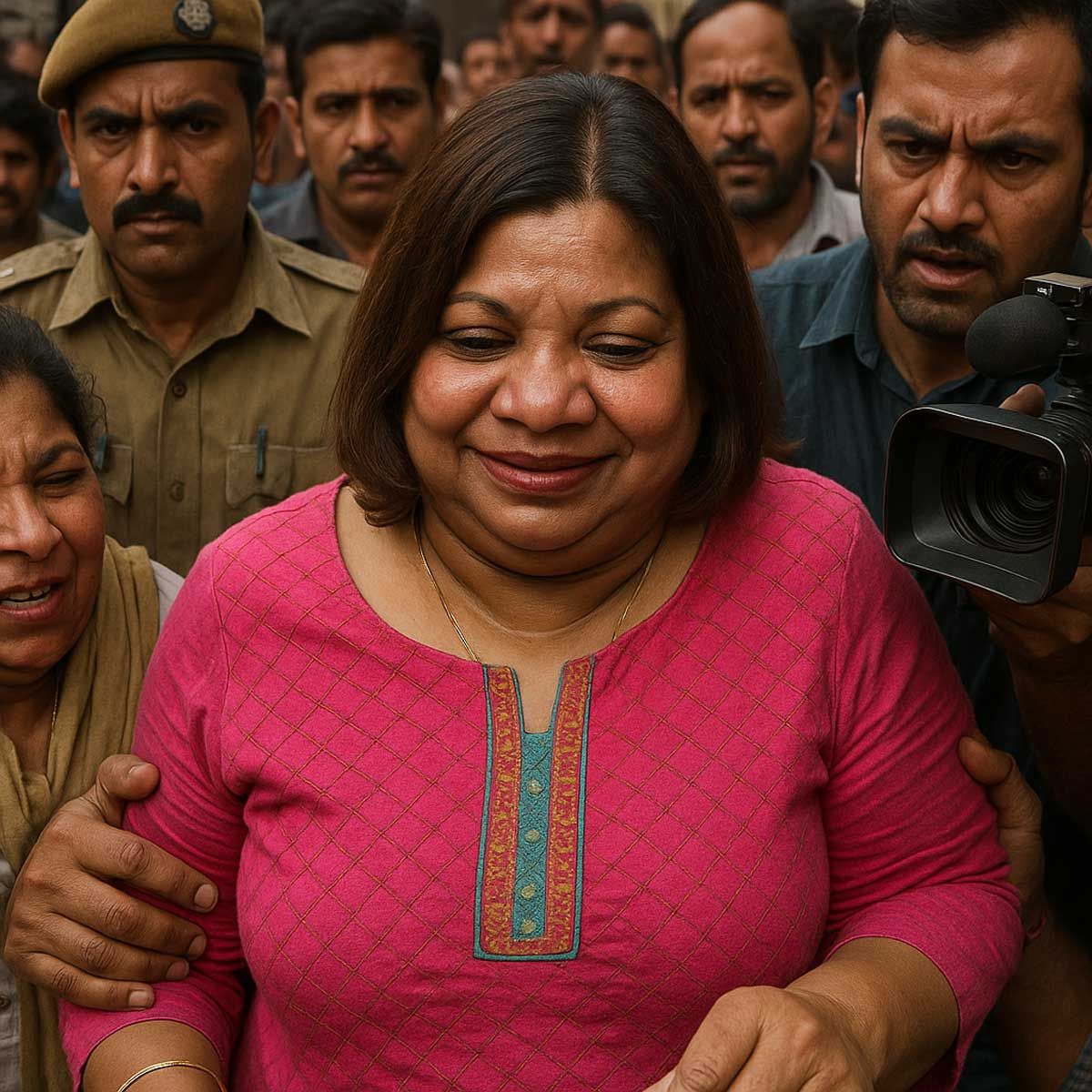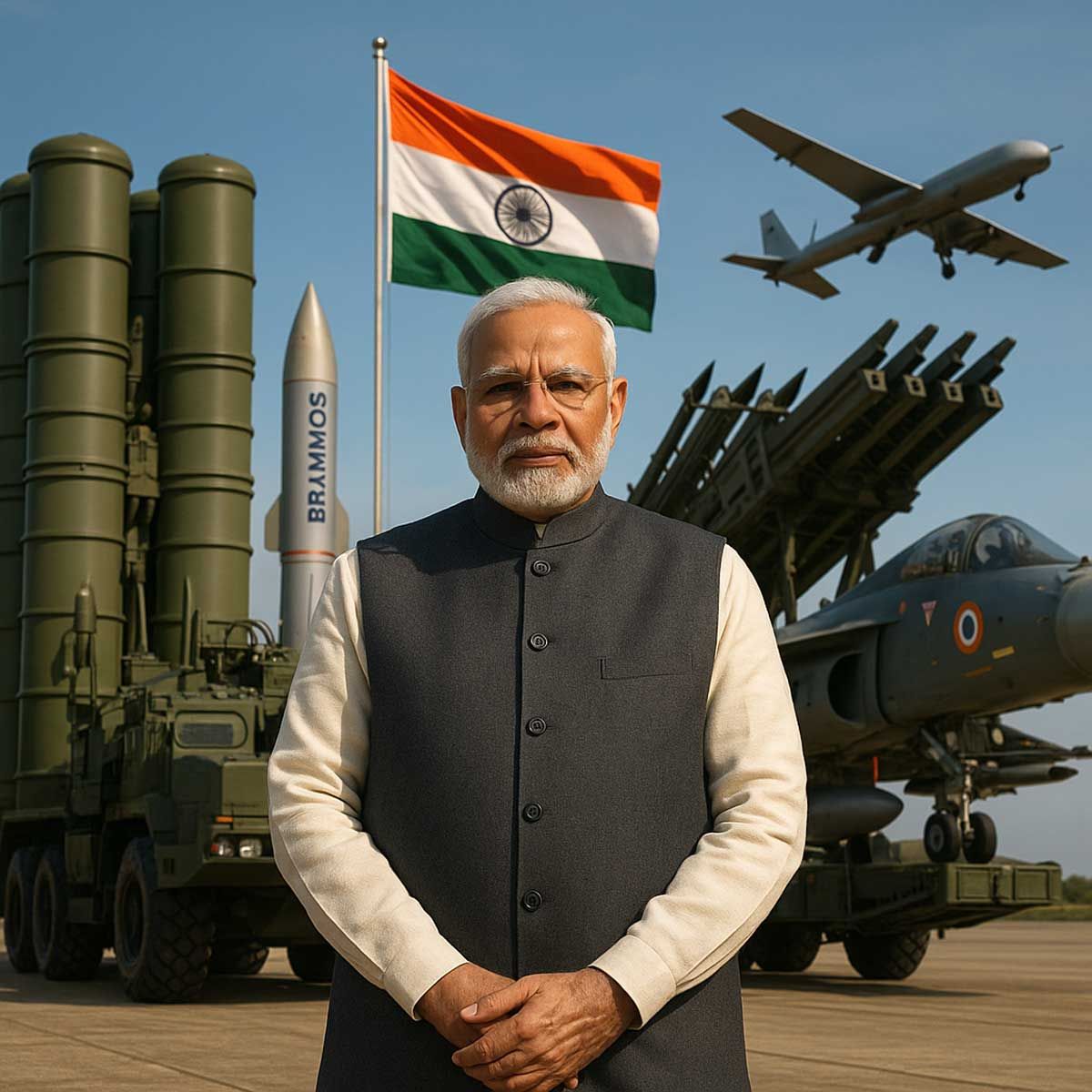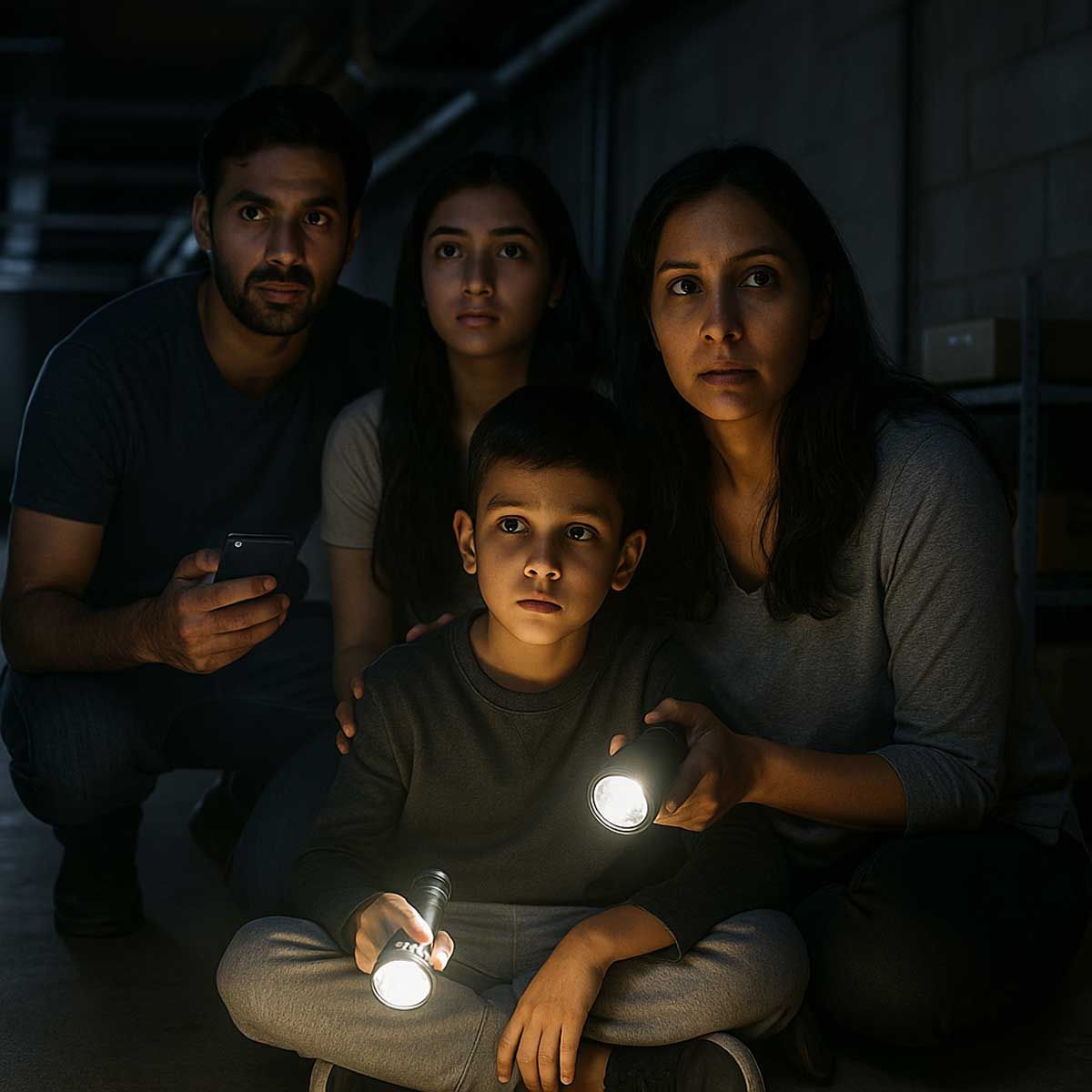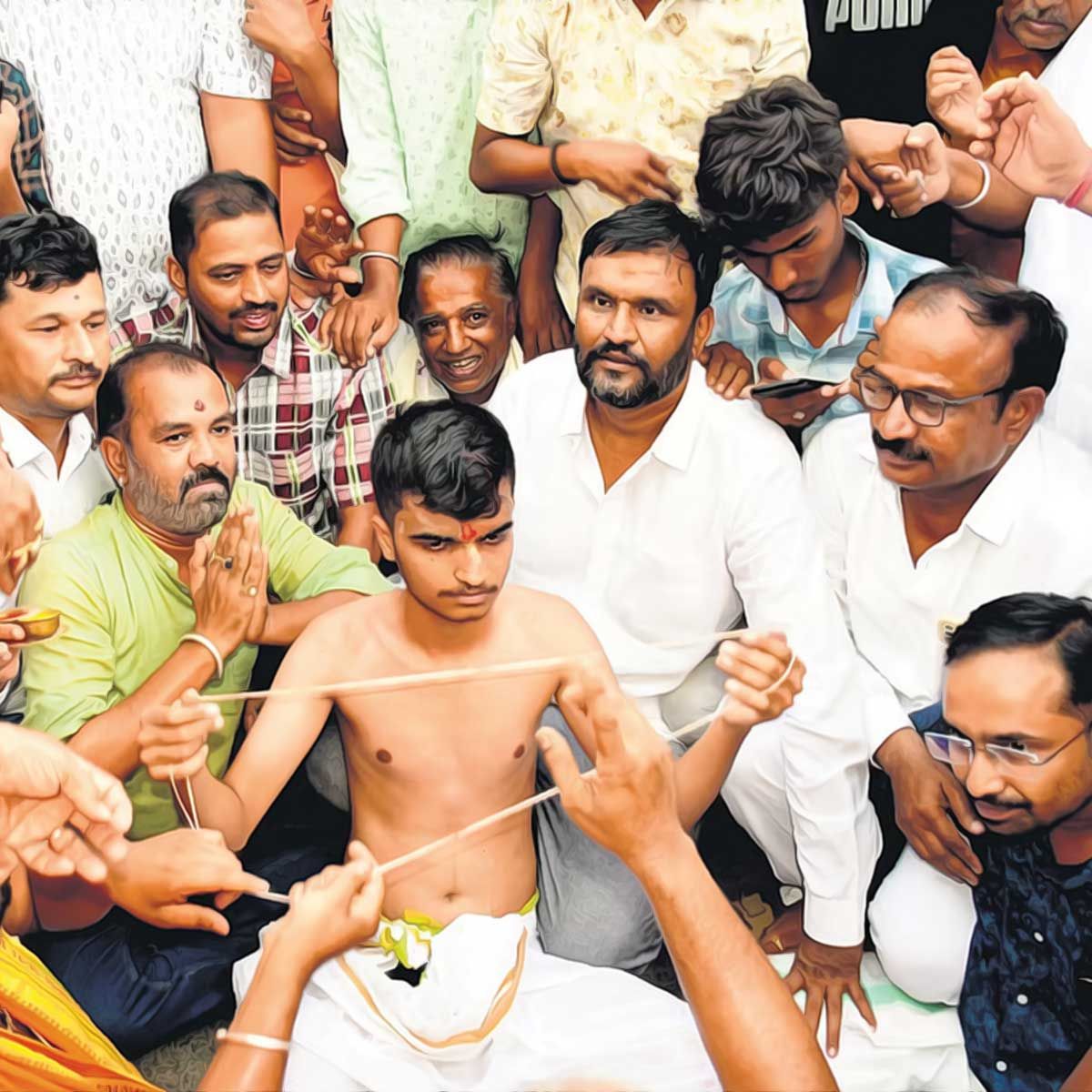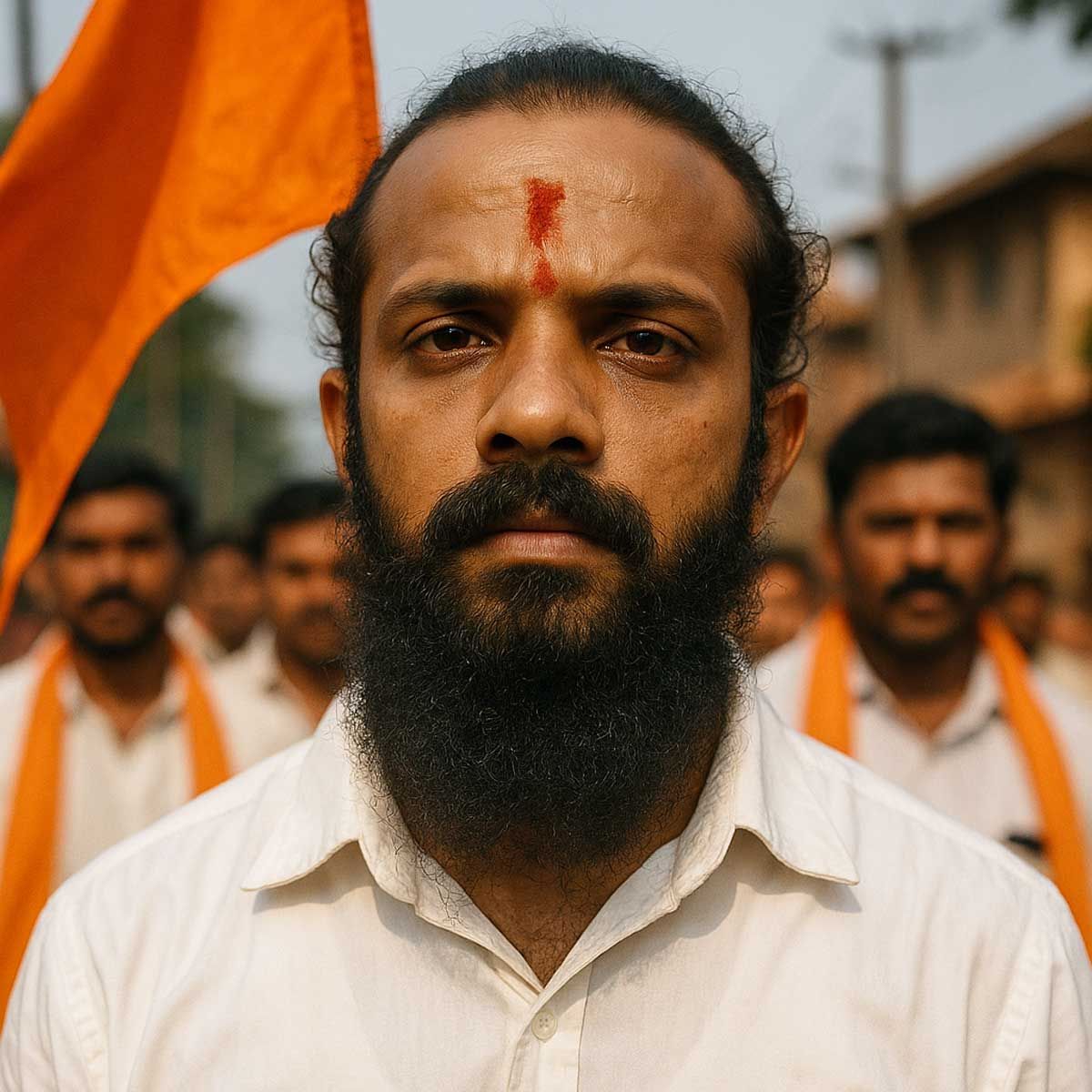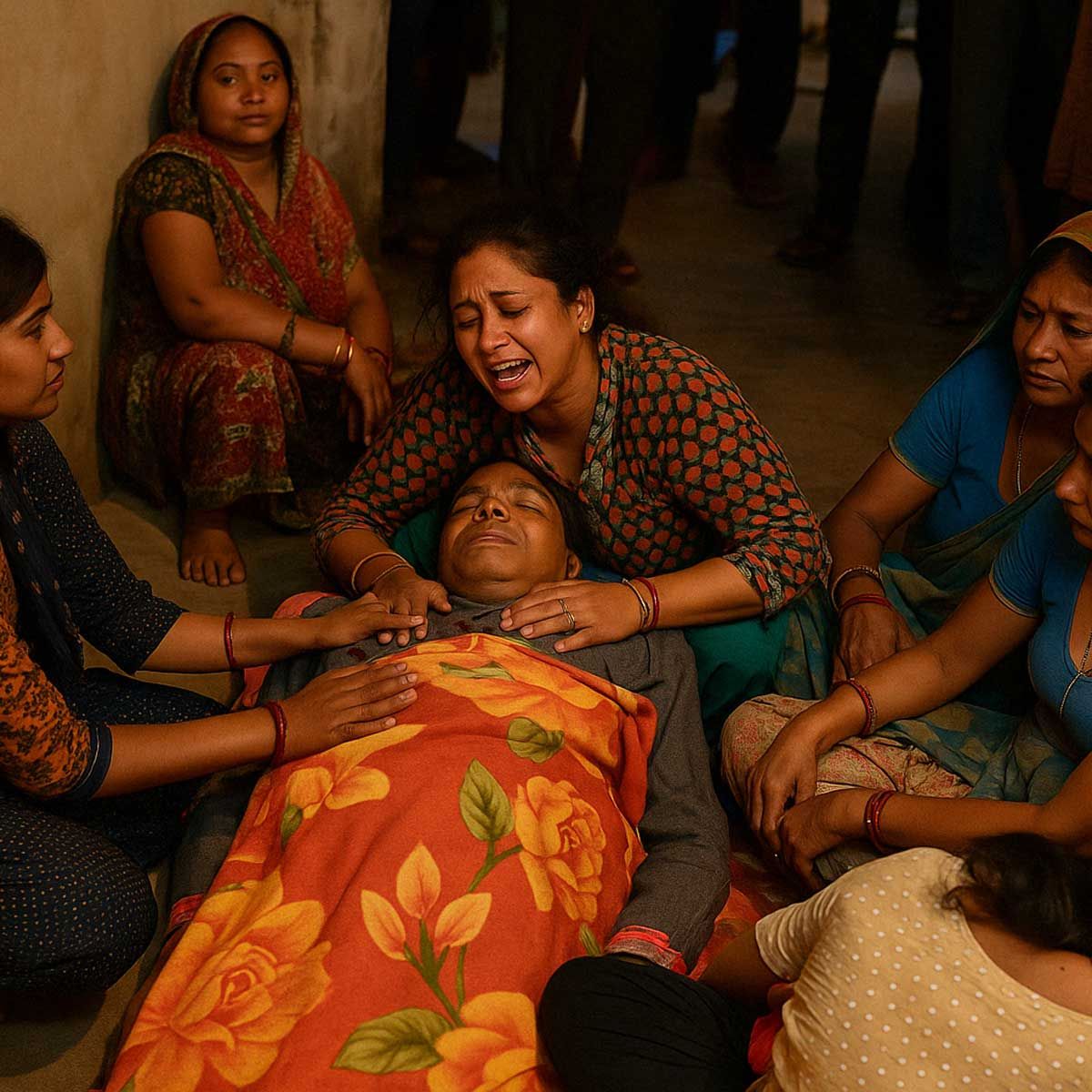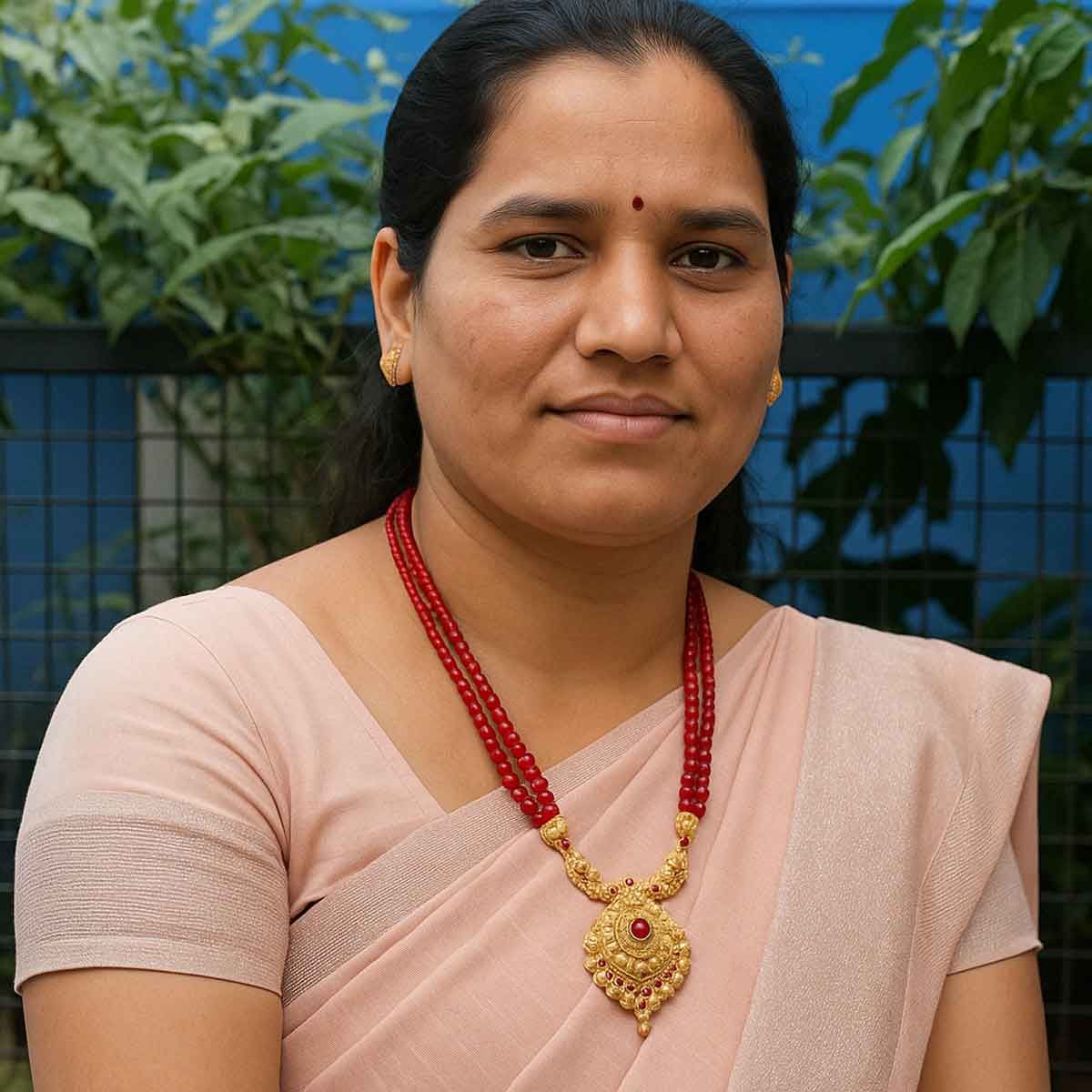More Coverage
Twitter Coverage
Satyaagrah
Written on
Satyaagrah
Written on
Satyaagrah
Written on
Satyaagrah
Written on
Satyaagrah
Written on
JOIN SATYAAGRAH SOCIAL MEDIA
"विद्या नाम नरस्य कीर्तिरतुला भाग्यक्षये चाश्रयो, धेनुः कामदुधा रतिश्च विरहे नेत्रं तृतीयं च सा": Modi Govt finally tames bureaucracy & recognizes proposal of establishing the Bharatiya Shiksha Board to impart traditional knowledge needed for modern age
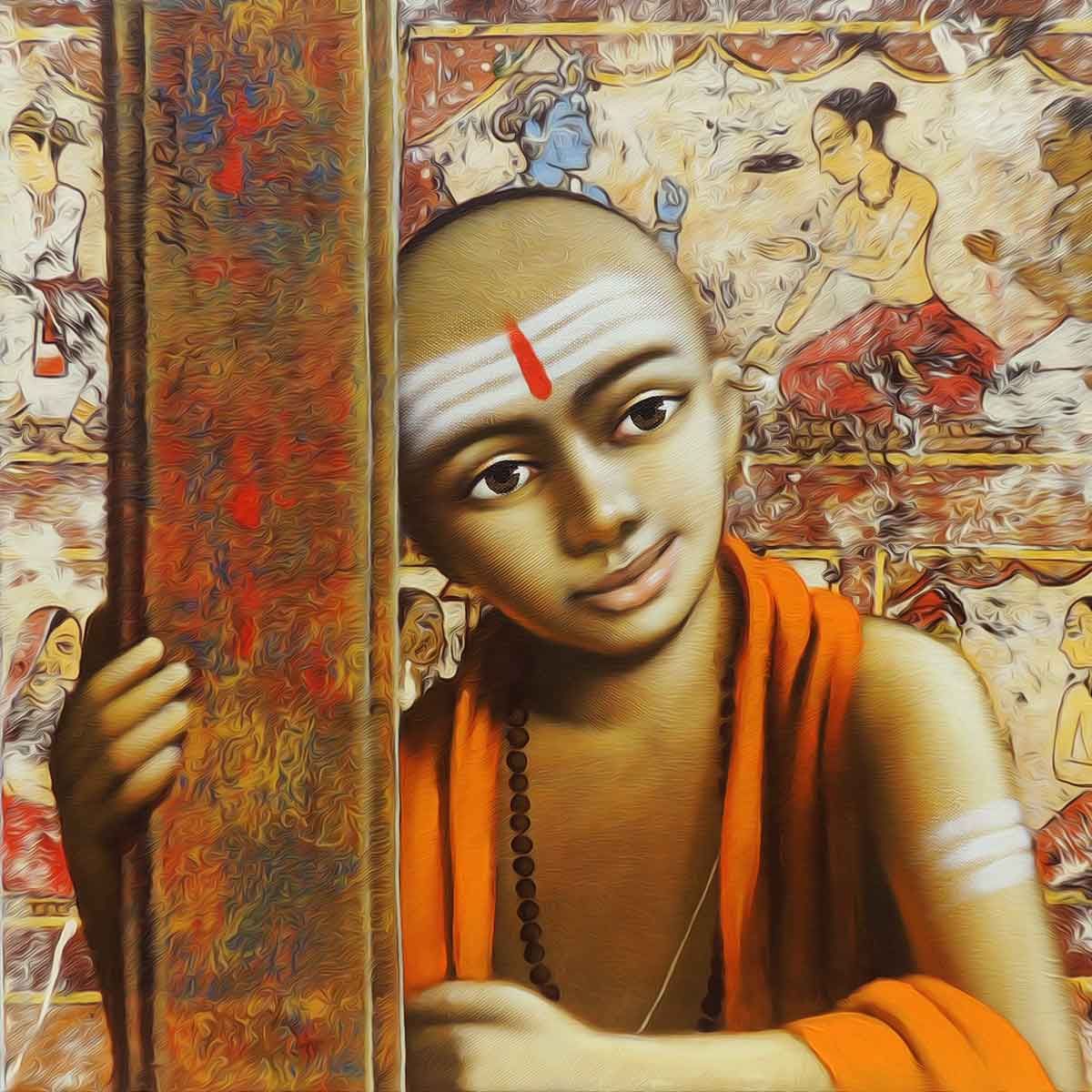
Recently, the Union government gave its approval to Baba Ramdev’s Patanjali Yogpeeth Trust to set up the Bharatiya Shiksha Board (BSB) even though MSRVVP objected to it.
|
About Bharatiya Shiksha Board (BSB)
- The idea to establish a new national school board for “swadeshikaran (indigenization)” of education was first mooted by Ramdev.
- In 2015, the yoga guru, through his Haridwar-based Vedic Education Research Institute (VERI), submitted a proposal to the Centre.
- He proposed to start a school board to help Indianise education by offering a mix of “archaistic education of Maharshi Dayanand”, “human education of Aurobindo”, and “Vedanta education of Swami Vivekananda” and modern curriculum.
- In 2019, the Union government overruled objections from MSRVVP and approved the bid by Baba Ramdev’s Patanjali Yogpeeth Trust to set up the BSB.
- Since the approval on March 9, 2019, BSB has been registered as a society and set up an office in Haridwar.
- A sum of Rs 71 crore as corpus fund and development fund has been deposited in its bank account and the Executive Board of BSB has also been constituted of which Ramdev is the chairman.
- BSB, a national school board on Vedic education will be set up along the lines of CBSE.
- BSB was conceived to be the country’s first national school board that would standardize “Indian traditional knowledge” and “blends it with modern education” by way of drafting curriculum, affiliating schools, conducting examinations, and issuing certificates.
- The BSB is likely to affiliate Ramdev’s Acharyakulam; Vidya Bharati schools (run by the RSS); and gurukuls run by the Arya Samaj because it will allow them to sustain their model of education up to Class XII.
|
Timeline: Objections by Maharshi Sandipani Rashtriya Veda Vidya Pratishthan (MSRVVP)
- After Baba Ramdev’s proposal, the then school education secretary S C Khuntia red-flagged the proposal on the grounds that the state’s sanction for a private board would open the doors for similar requests from other unrecognized school boards.
- In 2019, at a meeting of its Governing Council, chaired by Javadekar, MSRVVP tabled an agenda item (No. 3A) proposing to set up its own Vedic Education Board.
- But digressing from the original agenda item, the Governing Council decided that a Bharatiya Shiksha Board (BSB) for blending Vedic with modern education be set up through open bidding.
- And it was asked to appoint a private sponsoring body for putting BSB in place.
- Baba Ramdev’s Patanjali Yogpeeth Trust got the successful bid to set up BSB.
Maharshi Sandipani Rashtriya Veda Vidya Pratishthan (MSRVVP)
- It is an autonomous organization under the Education Ministry, working on encouraging and preserving “Ved Vidya”.
- It also works for the preservation, conservation, and development of Vedic Studies by establishing and supporting Ved Pathshalas.
- It is named after Sandipani, the guru of lord Krishna.
- It was established in 1987 in Delhi and was moved to Ujjain in Madhya Pradesh in 1993.
|
Recognize gurukuls and schools that offer a blend of Vedic and modern education
Reportedly, the BSB will ensure standardization of Indian traditional knowledge – Vedic education, Sanskrit education, shastras, etc – and it will also draft syllabus, conduct exams, issue certificates, and recognize gurukuls and schools that offer a blend of Vedic and modern education. Just like the Central Board of Secondary Education, the BSB will charge the schools an affiliation fee and examination fee.
This is a step in the right direction as the traditional school set-ups will now get quality standards that they need to adhere to, both in Vedic as well as modern education – which once done, will improve their credibility and worth.
However, there is a need to look at a Bharatiya Shiksha Board from a wider perspective. One that can fulfill Sri Aurobindo’s dream of a “national education”, which the philosopher thought “is next to Self-government, and along with it, the deepest need of the country.”
The need for Indians to understand, respect, and practice their culture has been acknowledged not just by our freedom fighters then, but by an increasing number of intellectuals now, apart from citizens, even millennials. Hence, the increasing emphasis on a system that “blends Indic knowledge and traditions with Western education, which would benefit Indians”.
News website Wire.in, for instance, in an article that was otherwise skeptical regarding the idea of a Vedic board, still did acknowledge that “In the last decade or so, genetic, archaeological and anthropological studies have been showing that India is one of the very few countries whose modern peoples are almost directly descended from their ancient counterparts. So when Indian schools teach our students about our biological history, the evolution of our cultures, and our various sources of knowledge over many millennia, we as a people have a lot to gain.”
|
So, when we talk of a new board that aims to blend modern and Vedic knowledge, it should actually go beyond gurukuls and paathshalas.
Four years ago, Baba Ramdev had proposed a similar education board, with the final aim of setting up 600-700 schools across the country that would make the education system Indian, with students graduating “behaving as rishis” – as reported by India Today.
Baba Ramdev is already running a school in Haridwar on these lines – Acharyakulam, a residential school – which offers education on subjects like the vedas and Upanishads and lays emphasis on values, yoga etc, apart from regular subjects like English, science, etc.
We also know that many educational institutions, including the IITs, have been imparting bits of training ancient Indian knowledge – as courses or as workshops. So, the need is undisputed.
Now, to devise a working proposal to this end. While Indian traditional knowledge and cultural base is important, so is a worldwide view, with proficiency in subjects that form the current knowledge base and discourse. Given global settings, the need of the hour is to develop our children as world-class citizens.
Education must serve the purposes of helping citizens find careers and also create a mindset that wants to help society and the nation. It needs to build character and inner strength. In addition, education of any country should be such that it arms children with adequate knowledge about various facets of their own culture.
The Ministry of Human Resources Development (MHRD) may want to further fine-tune its exact requirements to this end. Whereas the vedic board or BSB is a step towards the standardisation for Indian traditional knowledge, we need to go beyond just learning the vedas.
A ‘board’ or rather an entire education programme is the need of the hour – one that will help not just educational outcomes, but also build character and resilience. Good quality education, with wholesome education for the head, heart and body, should be available to everyone – it should be every child’s birthright.
In setting up such schools, it may be remembered that the existing traditional-modern-blend systems may not fit the bill, being perceived as inherently exclusive. Acharyakulam, for instance, charges Rs 2 lakh per child per annum – so affordability is already an issue. The RSS schools would be considered exclusive for other obvious reasons.
Further, the quality of education will matter: unless convinced of the infallibility of the high standard of the curriculum – one that will fetch them employment – students and their parents may not end up opting for these.
So, what is the way to create a good national education system, one that convinces people?
Recent news reports mentioned that the MHRD was looking to revive a proposal to allow international institutes to set up campuses in India so that Indian students get the best educational facilities within the country. Or, the recent pact between AIIMS and a London-based institution for research collaboration.
While these initiatives are aimed at business and higher education, can’t we also think of similar collaborative ventures for primary and secondary education?
A Hong Kong-based school chain bought over all five branches of a popular international school in Hyderabad called Oakridge. Nord Anglia, the buyer company, already has over 60,000 students in schools across Asia, Europe, the US, and the Middle East.
All these developments open up several possibilities. Without a doubt, such schools bring with them the best in Western discipline and professionalism, which we could gain from. So, parents would be keen that their children get this kind of exposure.
Yet, admittedly, these would be expensive. What if the government were to partly fund every child’s education?
Could we then have a chain of such `joint-venture’ schools in every city in each state?
|
A Carefully-Devised Course Content
Courses in maths, science, and social sciences, and other latest developments on the one hand, and standardized education in curated Indian knowledge and traditions on the other.
The Indian course content would need to be devised carefully so that the child learns about the culture and its merits; patriotism would then flow automatically.
Learning in the mother tongue could be made compulsory and that would include nursery rhymes in the lower grades, to literature in the higher grades.
Sanskrit and English proficiency would begin from the primary school years.
Learning the Vedas need not be an end in itself. Rather, knowledge from various Sanskrit texts, along with exposure to the world’s best literature and philosophy would enrich them.
Sports, creative and fine arts, yoga, etc, and other activities would be essential, to educate the body and the senses. Incorporating all this into the curriculum would mean residential schools that allow for time spent at school.
Of course, all teachers would need to be trained appropriately – and in a standardized manner – from the best in the subject(s).
The important thing to remember here is that it will have to be an amalgamation of foreign educational institutions and exposure to Indian knowledge and texts – in the mother tongue and Sanskrit equally.
Such a system is sure to find greater acceptability among all categories of Indians, and one that will benefit the maximum number. That may come closer to meeting Sri Aurobindo’s expectations of a ‘national education’ – national, both in terms of content as also its reach and applicability.
|
India's first Vedic education board to come up soon: Government
The government has said it will set up the country’s first national school board for Vedic education. Replying to a question in the Lok Sabha on Monday, Minister of State of Education Dr Subhas Sarkar said that Maharshi Sandipani Rashtriya Veda Sanskrit Shiksha Board (MSRVSSB) and Bhartiya Shiksha Board (BSB) would be established.
Both will be undertaken by Ujjain-based Maharshi Sandipani Rashtriya Veda Vidya Pratishthan (MSRVVP), an autonomous body of HRD for promoting Vedic education in the country, the minister said. The Vedic board, which will function like any other educational board, is aimed at combining Vedas and modern education, the minister said.
To a question by Congress MP Shashi Tharoor on the details under which the first national school board on Vedic education and the BSB has been approved by the government, the minister said the MSRVSSB has been established as an autonomous body for promoting Vedic Education in the country.
References:
swarajyamag.com
 Support Us
Support Us
Satyagraha was born from the heart of our land, with an undying aim to unveil the true essence of Bharat. It seeks to illuminate the hidden tales of our valiant freedom fighters and the rich chronicles that haven't yet sung their complete melody in the mainstream.
While platforms like NDTV and 'The Wire' effortlessly garner funds under the banner of safeguarding democracy, we at Satyagraha walk a different path. Our strength and resonance come from you. In this journey to weave a stronger Bharat, every little contribution amplifies our voice. Let's come together, contribute as you can, and champion the true spirit of our nation.
 |  |  |
| ICICI Bank of Satyaagrah | Razorpay Bank of Satyaagrah | PayPal Bank of Satyaagrah - For International Payments |
If all above doesn't work, then try the LINK below:
Please share the article on other platforms
DISCLAIMER: The author is solely responsible for the views expressed in this article. The author carries the responsibility for citing and/or licensing of images utilized within the text. The website also frequently uses non-commercial images for representational purposes only in line with the article. We are not responsible for the authenticity of such images. If some images have a copyright issue, we request the person/entity to contact us at satyaagrahindia@gmail.com and we will take the necessary actions to resolve the issue.
Related Articles
- 21-yr-old girl Bina Das shot Bengal Governor in her convocation programme at Calcutta University, got Padma Shri but died in penury
- History books should teach India’s civilisational, linguistic heritage, not unfounded claims: Parliamentary Committee meets to discuss NCERT books
- A Different 9/11: How Vivekananda Won Americans’ Hearts and Minds
- An Artisan Heritage Crafts Village: Indigenous Sustainability of Raghurajpur
- "Sanskrit is the language of philosophy, science, and religion": A Neuroscientist, James Hartzell explored the "Sanskrit Effect" and MRI scans proved that memorizing ancient mantras increases the size of brain regions associated with cognitive function
- Dangers of losing our identity: Guru Tegh Bahadur forgotten and Aurangzeb being glorified
- Freedom struggle of Gurjars against Britishers at Koonja in 1824: 100s of Gurjars Martyred and 100s Hung in Single Tree
- ‘Kanyādāna’ in an Age of lunacy and trending social media campaigns: To Give or Not to Give
- The Calculated Destruction of Indian Gurukuls (Education System) by British Raj which resulted in the tormented Indian Spirit
- Unsung Heroine Pritilata Waddedar, Who Shook The British Raj at the age of 21
- How Chhatrapati Shivaji Maharaj was establishing Hindu Samrajya by concluding centuries of Islamic oppression - Historian GB Mehandale destroys secular propaganda against Hindu Samrajya Divas
- "Do your duty unto others. This is the call of time. Ponder over why you have taken birth": Maharshi Vyasa, the author of Mahabharata asked Ganesha to aid him in writing the epic, but Ganesha imposed a condition that Vyasa narrate the story without pause
- Bhagwad Gita course for corporates is all set to launch at IIM Ahmedabad, will teach management and leadership
- Godse's speech and analysis of fanaticism of Gandhi: Hindus should never be angry against Muslims
- A new symbol of Hindutva pride, Shri Kashi Vishwanath Temple Corridor















